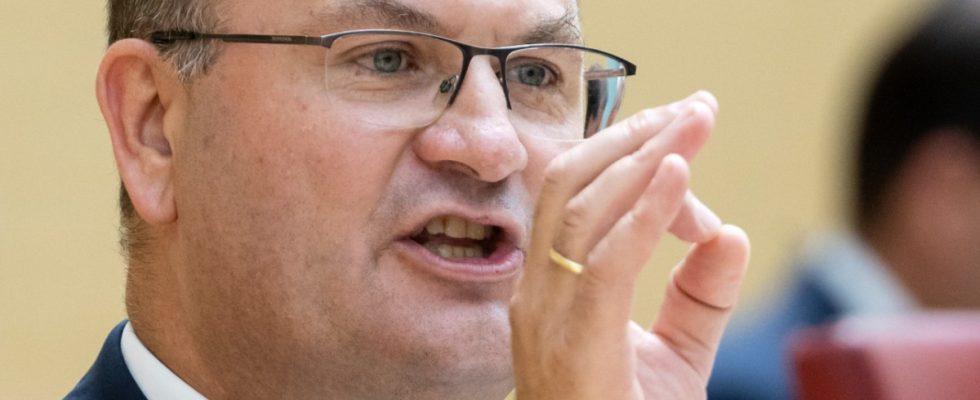Before the final negotiations on the new double budget, Bavaria’s Finance Minister Albert Füracker (CSU) warned both coalition partners against excessive wishes and expectations. “We don’t have much scope for creativity,” Füracker told the German Press Agency. Around 70 percent of the budget has already been earmarked for personnel costs and the municipalities.
“Budgeting is the order of the day,” he said and warned: “We cannot afford any major new additional expenditure.” The size of the budget is therefore likely to remain roughly the same as in previous years. “We won’t be able to go much higher. Where is the money supposed to come from when tax revenues are falling?” In 2023, the Bavarian budget totaled a good 71 billion euros.
Nevertheless, Füracker assumes that the cabinet can draw up “a solid and sensible double budget” at its budget meeting. “We have a decent reserve that can be used if necessary, and not everything always has to be tackled immediately,” he said. The coalition agreement between the CSU and Free Voters runs for five years. “So I’m very confident that we will agree on a budget concept,” said Füracker, but emphasized: “However, it’s just like everywhere else – you know it from home: not everything works right away.”
Füracker doesn’t see that Prime Minister Markus Söder (CSU) in particular is constantly making new announcements that are causing additional spending. “We decide on significant spending together in the coalition,” he said and added: “The ideas of our coalition partner also cause major costs. It is not the case that the Free Voters have so far shown an urge to cut spending. At least that is the case “That didn’t get through to me.”
“In the coalition agreement, all expenditure is agreed on the condition that the budget situation allows it – that is completely natural and self-evident,” said Füracker. But there are already agreements as a result of which something will and must be done. “In the area of teachers, the police and also the tax administration, it is expected that staff will be increased.”
Fundamentally, Bavarian budget policy faces several challenges. According to Füracker, the collective bargaining agreement for the public sector is one of the highest and therefore one of the most expensive of all time. “We only have to factor this into the 24/25 double budget at well over four billion euros for the existing staff.” This is a huge challenge in times of declining tax revenue.
In addition, there is the planned repayment of the Corona debts – these are to be paid off within 20 years. “If tax revenue continues to decline – as it is currently doing – then solid economic activity will become increasingly difficult,” said Füracker. However, he could not recognize an emergency in the sense of a “real emergency” such as an acute natural disaster or pandemic. Taking on new debt is therefore out of the question. “In this respect, the constraints that we have for the Bavarian budget are serious. We don’t need to fool ourselves,” he said.
Füracker wants to keep the investment rate stable. “We don’t want to cut investments. But in the course of budget negotiations, new wishes often arise – not everything can be fulfilled,” he said. However, Füracker warned against a misunderstood concept of savings. “For example, a canceled expense for which there was actually no money anyway is seen as a savings. I always say: No, I just didn’t spend money that wasn’t available anyway.”
At a budget meeting at the end of January, the cabinet wants to finalize the double budget for 2024/25. The budget is expected to be passed in the state parliament in the second quarter. It is the first time since the Corona crisis that Bavaria is setting up a double budget, as was previously the case – during the crisis, the state government switched to one-year budget planning due to the uncertainties.

